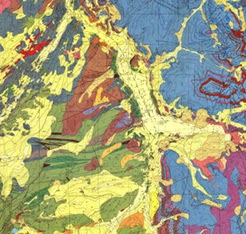Establishing
a Youth Forum emerged as an important process in the creation of synergies
between UNESCO’s work on youth, youth organizations and public institutions
working on youth, thereby striving to create interaction between young women
and men across the world, policy makers, the civil society, the private sector
and the international community.
This year,
around 500 young participants from all over the world will gather on the
occasion of the 8th UNESCO Youth Forum, from 29 to 31 October
2013 at UNESCO’s
Headquarters in Paris, to exchange views, share experiences, reflect
together and, above all, identify common preoccupations and problems.
Three
YES leaders have been nominated as Innovators by UNESCO and one of them will participate
onsite to highlight their role in putting geoscience in the service of society
and connecting young earth-scientists worldwide.
Besides, all
YES members are invited to participate online in the UNESCO Youth Forum
discussion about “Youth and social inclusion: civic
engagement, dialogue and skills development”. For information on how to
register, please check out the following link http://bit.ly/1758pnD.
By taking
part in the online discussion community, young men and women will be able to
shape the way in which UNESCO’s Operational Strategy on Youth is to be
implemented from 2014 to 2021.
In line with the three main axes of this Strategy, the topics for discussion are:
1. Policy formulation and review with the participation of youth
2. Capacity development for the transition to adulthood
3. Civic engagement, democratic participation and social innovation
In line with the three main axes of this Strategy, the topics for discussion are:
1. Policy formulation and review with the participation of youth
2. Capacity development for the transition to adulthood
3. Civic engagement, democratic participation and social innovation
To read
more about the online discussion forum, please visit the following page: http://bit.ly/1fCu2S9


